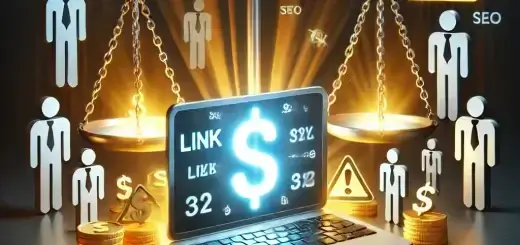What to Do If Your Website Gets Penalized for Selling Links
Many people want to make money from their websites. One way to do this is by selling links. However, selling links can get your website in trouble. Search engines like Google do not like this practice. If they find out you are selling links, they might penalize your website. This means your site could drop in rankings or even be removed from search results. If this happens, you need to know what to do next. In this article, we will explore what steps you can take if your website gets penalized for selling links.

Understand What a Link Penalty Is
![]()
A link penalty is a punishment from search engines. It happens when a website violates rules about links. Here are some key points to understand:
- Search engines want quality content.
- They aim to provide users with the best results.
- Buying and selling links can lead to penalties.
- Penalties can harm your website’s visibility.
- There are two types of penalties: manual and algorithmic.
- Manual penalties come from human reviewers.
When your site gets penalized, it can be stressful. Your hard work may seem wasted. But understanding the penalty helps you create a plan. You can fix things and improve your situation.
Identify the Reason for the Penalty
![]()
Finding out why you got penalized is important. Here’s how to identify the reason:
- Check your email for notifications from Google.
- Use Google Search Console to look for messages.
- Review your recent activities related to links.
- Look for unusual drops in traffic or rankings.
- Analyze your backlinks using tools like Ahrefs or Moz.
- Determine if you have paid for links or exchanged them improperly.
Once you know the reason, you can take action. For example, if you sold links, acknowledge that it was against the rules. Understanding the problem is the first step toward fixing it.
Remove Bad Links from Your Website
![]()
The next step is to remove any bad links. Bad links are those that violate search engine guidelines. Here’s how to do it:
- Go through your website’s content.
- Look for links that seem suspicious.
- Contact webmasters to request link removals.
- Use the Disavow tool in Google Search Console.
- Make sure to document your efforts to clean up links.
- Be patient; removal can take time.
Removing bad links shows that you are trying to fix the issue. It helps rebuild trust with search engines. This process is crucial for recovering from a penalty.
Improve Your Website’s Content Quality
![]()
Next, focus on improving your website’s content. High-quality content is essential for better rankings. Here are some tips:
- Create original and valuable content.
- Use clear headings and subheadings.
- Include images and videos to engage visitors.
- Ensure your content answers users’ questions.
- Regularly update old content to keep it fresh.
- Encourage user interaction through comments and shares.
When you enhance your content, search engines will notice. Quality content attracts organic traffic. This can help reverse the effects of a penalty.
Submit a Reconsideration Request
![]()
If you believe you have fixed the issues, consider submitting a reconsideration request. This is a formal way to ask for a review. Here’s how to do it:
- Log into Google Search Console.
- Go to the “Manual Actions” section.
- Write a clear explanation of what happened.
- Detail the steps you took to fix the problems.
- Submit the request and wait for a response.
- Be ready to provide additional information if needed.
A reconsideration request shows you are serious about following the rules. If accepted, it can lead to the lifting of the penalty.
Monitor Your Website Regularly After the Penalty
![]()
After dealing with a penalty, monitoring your website is vital. Keeping an eye on your site helps catch new issues early. Here are some monitoring tips:
- Check your website’s traffic regularly.
- Use Google Analytics to track changes.
- Review your backlinks monthly.
- Stay updated on SEO trends and guidelines.
- Set alerts for unexpected drops in rankings.
- Engage with your audience to gather feedback.
Regular monitoring helps maintain your website’s health. It also allows you to adapt to any future changes in search engine algorithms.
Learn from the Experience to Avoid Future Issues
![]()
Finally, learn from this experience. Understanding what went wrong can prevent future penalties. Here’s how to avoid similar mistakes:
- Educate yourself about SEO practices.
- Follow search engine guidelines closely.
- Build relationships with reputable websites.
- Focus on organic growth instead of shortcuts.
- Participate in SEO forums for ongoing learning.
- Keep your website’s purpose clear and honest.
Learning ensures long-term success. It helps you build a strong online presence without risking penalties again.
Conclusion: Taking Control After a Link Penalty
![]()
Getting penalized for selling links can be a tough experience. However, it is possible to recover. Start by understanding the penalty and identifying its cause. Remove bad links and improve your content quality. Then, submit a reconsideration request if necessary. Regular monitoring and learning from the experience are crucial for avoiding future issues. Follow these steps, and you can regain control of your website’s success.
In summary, penalties happen, but they are not the end. With the right actions, you can bounce back stronger than before.







